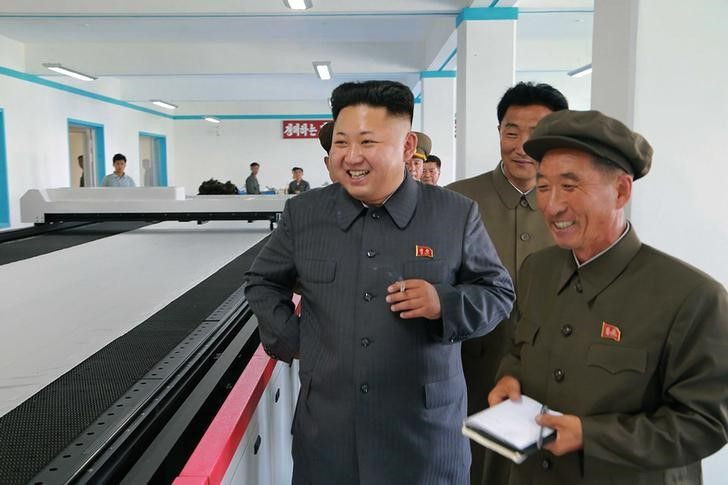North Korea’s Release Of Jeffrey Fowle: Good News, But Not A Thaw

North Korea’s sudden, unexplained release of Jeffrey Fowle, a U.S. citizen detained for five months, is stirring some speculation that the Hermit Kingdom may be trying to thaw its hostile relationship with the United States. But analysts say it’s not quite time to roll out the welcome mat just yet.
“The release of Mr. Fowle shouldn’t come as a surprise,” said Sung-Yoon Lee, a professor of Korean studies at Tufts University’s Fletcher School. “Continuing to hold onto U.S. prisoners against their will brings really no great value to North Korea. These are civilians who have no intelligence value to offer, so it was time to let at least one of the three [detainees] go. Mr. Fowle was the natural candidate because he had not been tried yet, and his alleged offense was the least serious from North Korea’s point of view.”
Fowle, 56, was arrested in North Korea in May after leaving a Bible at a bar; Pyongyang considers proselytizing Christianity a crime. Two other U.S. citizens remain in North Korea: Kenneth Bae and Matthew Todd Miller, both of whom were sentenced to labor camps. Bae has been detained for nearly two years, while Miller was arrested in April.
Lee said that Fowle’s release was part of a classic North Korean carrot-and-stick strategy that it has employed for decades against the United States and South Korea.
“Whenever North Korea does something that seems conciliatory, it creates expectations of improvement in talks,” he said. “Psychologically, that makes the U.S. and South Korea dependent on further goodwill from North Korea in the short term.” Mixing belligerence with a charm offensive, Lee said, has allowed Pyongyang to extract billions of dollars in aid from Washington and Seoul over the past two decades.
Other analysts were cautiously optimistic about North Korea’s latest move. Katharine H.S. Moon, a senior fellow at Brookings, wrote in an analysis that releasing Fowle puts Pyongyang on the right track toward engagement with the United States. But it’s too soon to say whether the move signals a willingness to open diplomatic channels, she said. “If the DPRK [Democratic People’s Republic of Korea] wants to engage with the U.S., releasing the other two prisoners is imperative,” Moon wrote.
Meanwhile, Victor Cha, director of Asian studies at Georgetown University, sensed a different goal behind Fowle’s release. “There’s clearly a strategy behind it, but I don’t think the strategy is for a diplomatic opening,” he said. “I think it’s related to the issue of human rights.”
Cha noted that North Korea is facing a possible referral to the International Criminal Court over a damning U.N. report detailing widespread human rights abuses in the country. “They’re very worried that there’s growing momentum in the international community to hold North Korea accountable for this,” he said. “I think the release of Fowle is in part to play defense with regard to the human rights offensive.”
The U.N. General Assembly is voting this week to pass a resolution on referring North Korea’s case to the court. But Cha said that the fate of remaining detainees Bae and Miller was still uncertain. “If the North Koreans don’t like [the U.N. resolution], they’re not going to release anybody else. If they do like it, they would have accomplished what they wanted and there’d be no need to release anybody else.”
But Lee said he expected both Bae and Miller to be released by the end of the year. “There’s no great utility for North Korea to be keeping them," he said.
© Copyright IBTimes 2024. All rights reserved.






















